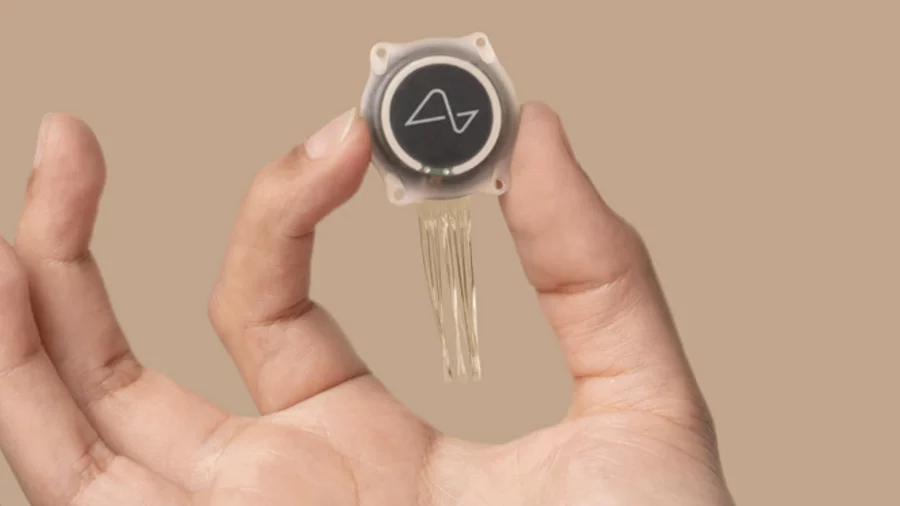Elon Musk, known for his ventures in space and electric vehicles, as well as controversies such as Twitter’s rebranding into X, announced a major breakthrough on January 29, highlighting a key advancement in brain-computer interfaces (BCIs). His company’s product, Neuralink, took a significant leap by successfully implanting a wireless brain chip into a human brain. These devices are capable of interpreting brain activity which can potentially enable people with severe paralysis to control devices like smartphones, robotic arms, tabs, etc. only with their thoughts. This kind of device will have a tremendous impact on patients’ quality of life and caregivers alike.
The Neuralink implant successfully blends advanced neuroscience and engineering. It features 64 flexible threads and 1,024 sites for recording brain activity, providing precise monitoring capabilities. Unlike earlier BCI systems from companies like Blackrock, Neuralink works by inserting tiny electrodes into the brain which allows brain signal decoding with high accuracy and lets its users control external devices with great efficiency. In the past, such a device needed to have a physical connection to a computer via a port embedded in the skull. This setup not only heightened the risk of infection but also limited practical applications in the real world.
However, Neuralink’s recent human trials have raised concern in the community of scientists and science enthusiasts. Scientists are eagerly waiting for the potential insights of the trial, yet they are distressed at the absence of transparency and public details. In 2022, the Physicians Committee for Responsible Medicine – a U.S. nonprofit that works to find alternatives to animal testing – brought to the notice of authorities the deplorable condition of macaque monkeys used in the research. It raised questions not only about the ethical aspect of the research but also about its viability for humans.
“I think Neuralink could be a great development,” Lambert junior Vaibhavee Shirkhedar said. “But after seeing what happened during the trials done on monkeys, I think it’ll become a problem.”
In February 2022, Neuralink’s blog stated that a surgical complication occurred due to the use of the FDA-approved product (BioGlue) and the monkey was euthanized. Moreover, Neuralink is excluded from acclaimed registries like ClinicalTrials.gov, raising serious accountability concerns despite FDA approval.
“It’s really unethical and honestly scary to think about how this technology could be misused,” Shirke said. “It’s definitely very good for healthcare, but I think the cons outweigh the pros.”
To that end, Neuralink’s technology promises to revolutionize support for individuals with paralysis or disabilities but also ensures the integration of humans and artificial intelligence (AI). It can potentially enhance cognitive functions and transform healthcare; yet there are many apprehensions regarding the implant’s safety and reliability. It’s crucial to evaluate the far-reaching impact of blending human consciousness with AI while also considering ethical implications.
Despite this sense of foreboding and numerous challenges, the potential of Neuralink’s technology and BCIs is riveting. It offers the possibility to restore mobility for paralyzed individuals and to explore the mysteries of the human mind. Musk’s vision pushes the limits of technological possibility. It also invites us to imagine a future where humans and machines are more closely integrated, a thought as captivating as it is scary.















